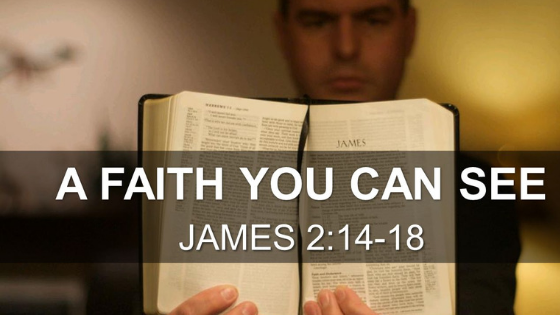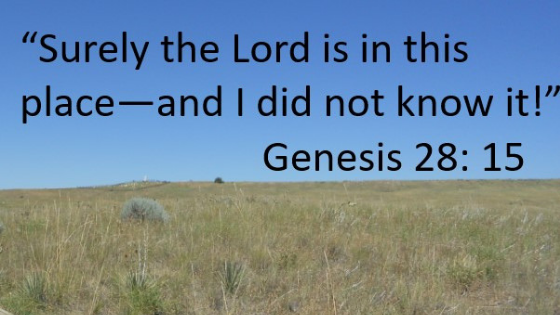REFLECTIONS ON THE READINGS FOR THE 24th SUNDAY OF THE YEAR,
16th SEPTEMBER 2018, YEAR B
Isaiah 50:5-9; Psalm 114:1-6, 8-9; James 2:14-18; Mark 8:27-35
 Our first reading is part of the third Servant Song in Second Isaiah. The speaker is aware that he has been touched by God and this experience governs the whole of his life. But history proves that such a person, acting as intermediary between God and humanity, is destined to suffer. All the prophets, from Moses to Jesus, encountered hostility from those to whom they addressed God’s word. Isaiah accepted his fate, along with his mission. In Jewish commentary on this text we read: ‘God said, “My children are wearisome and rebellious. If you will take it upon yourself to be despised and beaten by them, then go forth on my mission, but if not, accept it not.” And Isaiah said, ‘Upon this condition I go forth, namely my back I give to the smiters, my cheeks to them that pluck off my hair, and even so, I am not worthy to go forth on thy mission to thy children.”’
Our first reading is part of the third Servant Song in Second Isaiah. The speaker is aware that he has been touched by God and this experience governs the whole of his life. But history proves that such a person, acting as intermediary between God and humanity, is destined to suffer. All the prophets, from Moses to Jesus, encountered hostility from those to whom they addressed God’s word. Isaiah accepted his fate, along with his mission. In Jewish commentary on this text we read: ‘God said, “My children are wearisome and rebellious. If you will take it upon yourself to be despised and beaten by them, then go forth on my mission, but if not, accept it not.” And Isaiah said, ‘Upon this condition I go forth, namely my back I give to the smiters, my cheeks to them that pluck off my hair, and even so, I am not worthy to go forth on thy mission to thy children.”’
Jesus’ destiny was to follow the same pattern as that of the Servant in Isaiah. He knows that he must suffer, encounter hostility, submit to abuse and face the prospect of death. The passage we read from Mark today is the watershed of his gospel. The character of the story changes at this point. The framework of the next two chapters is a journey, taking Jesus from Caesarea Philippi in the far north to, eventually, the gates of Jerusalem. It is his journey to the cross and the teaching he tries to give his disciples as they travel together concerns the meaning of his own mission and the nature of their discipleship. Only two miracles take place during this journey, both involving restoration of sight. It is as though Mark has enclosed Jesus’ teaching about his own role and the meaning of discipleship between two miracles of restored sight, standing as symbols of the disciples’ clumsy attempts to follow Jesus. Mark had already begun his gospel with the dramatic words, “The beginning of the Good News about Jesus Christ, the Son of God.” Here the term “Christ,” meaning ‘anointed’, the Greek equivalent of the Hebrew ‘messiah’, is used almost as a proper name. Mark uses it in two crucial passages where Jesus’ identity is at issue, here in our reading today and later, in chapter 14, when the high priest asks Jesus if he is the Christ. In today’s passage, Peter’s dramatic declaration, “You are the Christ” receives no acknowledgement from Jesus, who commands secrecy because the truth about his identity can be grasped only by those who are his disciples. Up to this point the disciples themselves have asked the question, “Who then is this?” (Mark 4:41) but have been unable to answer it. They have been rebuked by Jesus repeatedly for their lack of faith and understanding. Now, by their answer they separate themselves from other people who see Jesus merely in the role of a prophet. Yet even the disciples are still only half aware of the truth and they continue to falter in a state of semi-blindness, frequently failing to understand what Jesus now teaches them plainly. From this point onwards, the truth which they can’t grasp is the necessity for suffering: the costly nature both of Jesus’ messiahship and of their own discipleship. So the overall theme of Jesus’ teaching is concerned with what it means to follow someone who sees his own mission in terms of service and suffering. From this point on, the atmosphere of the gospel changes dramatically; now the dominant theme is that of the cross, interwoven with the meaning of discipleship, which the disciples simply seem unable to comprehend. The specific reference to resurrection may reflect later Christian experience of the way in which Jesus was vindicated, but certainly he must have expressed his confidence that God would not put him to shame.
The reading from the Letter of James introduces for the first time James’ conviction that faith without putting such faith into action cannot save, because such a faith is “dead”. “Having good deeds/works” is here defined as fulfilling the elementary claims of human behaviour. Genuine concern for those in need as a basis for action is one of the key themes of James. Mere ‘talk’ is most certainly not enough.
Psalm 114 is the prayer of a person who has been saved from some calamity, perhaps, even, an illness which might have proved fatal. Having experienced God’s saving power, he is full of gratitude. The phrase, “I will walk in the presence of the Lord in the land of the living” is interesting, as the idiom has a double meaning: to ‘walk about’ and to ‘perform service’. The implication is that the speaker, restored to life, will do both. We might see a clear link, then, with the teaching given by Jesus in the gospel about what such ‘service’ is all about – suffering is very clearly involved. It is indeed costly.
This week’s Sunday Gospel Commentary was prepared by
Sr Margaret Shepherd, NDS, London, UK
margaretashepherd@gmail.com
[Copyright © 2018]
………………………………………………………………………………………



